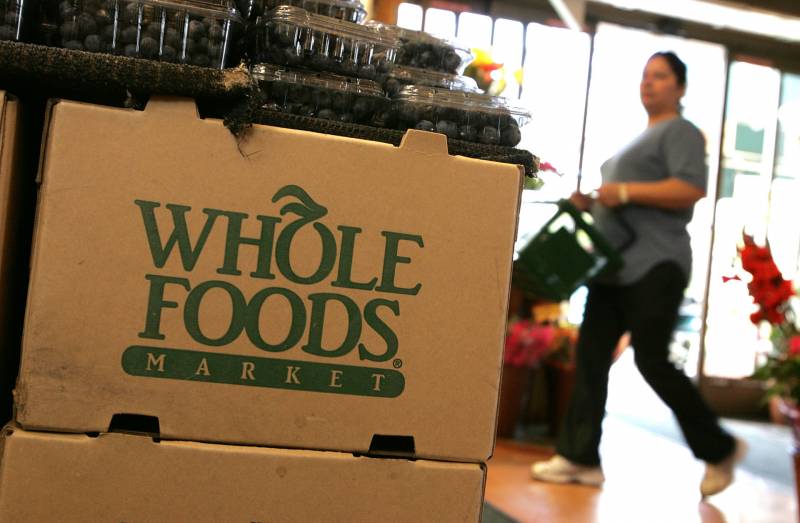Whole Foods employees at San Francisco's Stanyan Street location were called together Saturday morning for an announcement: One of their coworkers had tested positive for the coronavirus.
Later, employees got a phone call from an unknown number. It was a recorded message delivering the same news. Whole Foods workers across the nation have received similar messages when one of their co-workers at the Amazon.com-owned grocery chain tests positive for COVID-19, including recently in Huntington Beach and Chicago.
So far, no Whole Foods stores in the U.S. have been shut down.
In a statement emailed to KQED Monday, a Whole Foods spokesperson confirmed that a worker at the Stanyan Street store had tested positive for COVID-19. The spokesperson said the safety of workers and customers is Whole Foods' top priority, and that the Stanyan Street location performed an additional cleaning and disinfection on top of enhanced sanitation practices already in place at all stores during the coronavirus pandemic.
As long as the crisis continues, Whole Foods says it is "enhancing its daily cleanliness and sanitation protocols" at all of its stores, operating under social distancing guidelines and closing stores up to two hours early to give workers more time to restock shelves, sanitize and rest.
‘They Don't Want Us to Tell Customers’
Still, two Whole Foods employees at the Stanyan Street location told KQED they have concerns about the store’s transparency with both workers and customers. The workers spoke on condition of anonymity for fear of losing their jobs.
“I'm super concerned because regardless of whether or not I am a healthy young man, I don't know how the coronavirus is going to affect me or the people that I know, and the people who I live with,” said one worker who attended the Saturday meeting. “They don't want us to tell customers. They want us to direct customers to our store team leader.”
The worker said management told employees that the infected person was last at the store on March 15, almost exactly two weeks before employees were told about the person's positive COVID-19 test result on March 28.
“The question is, why wasn't [that person] in the store for the last two weeks and when did they actually get notified that [that person] had coronavirus?” the employee wondered. “Whether or not they think we should be quarantined doesn't mean we don't think that we should be quarantined if we were in contact with that person.”

